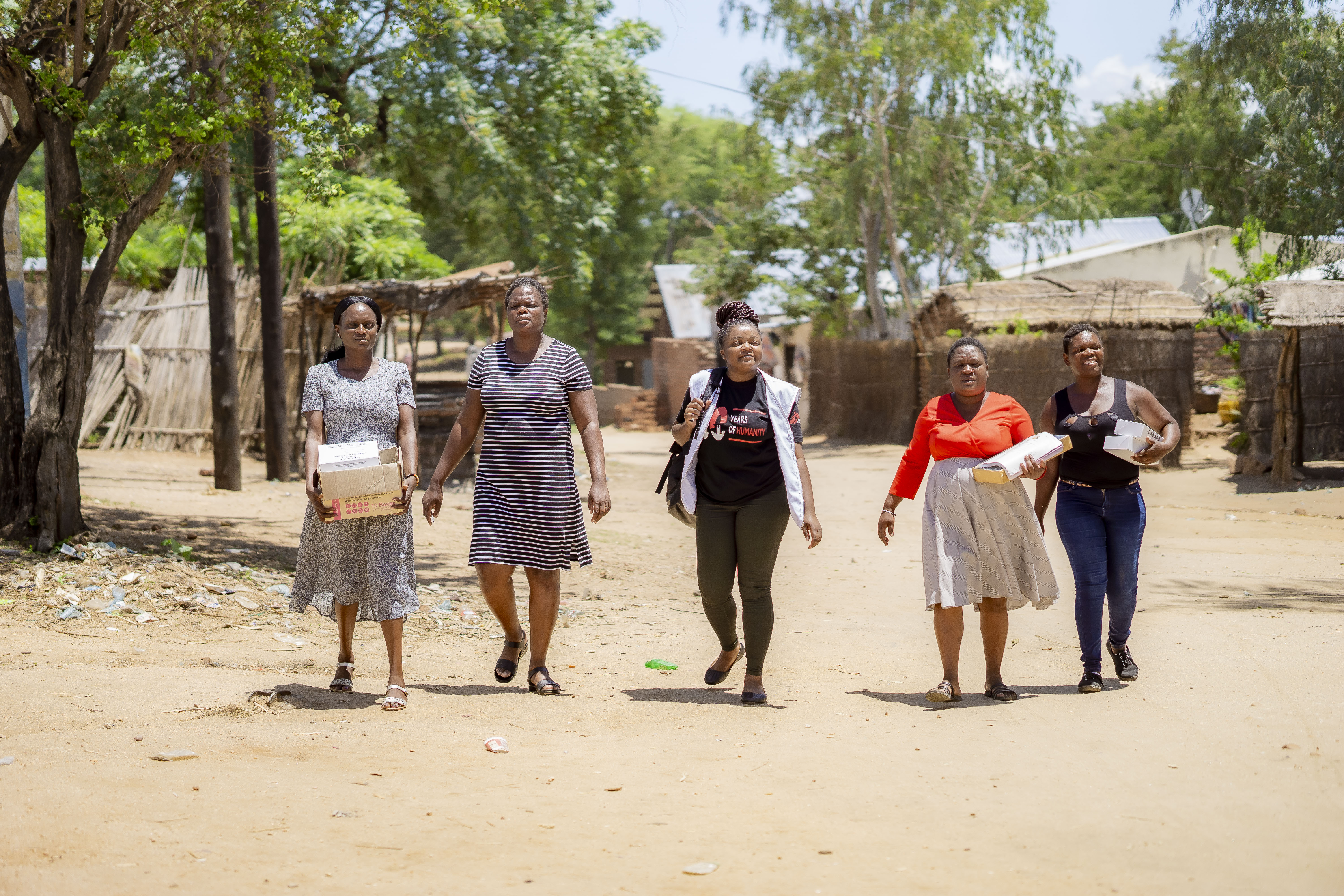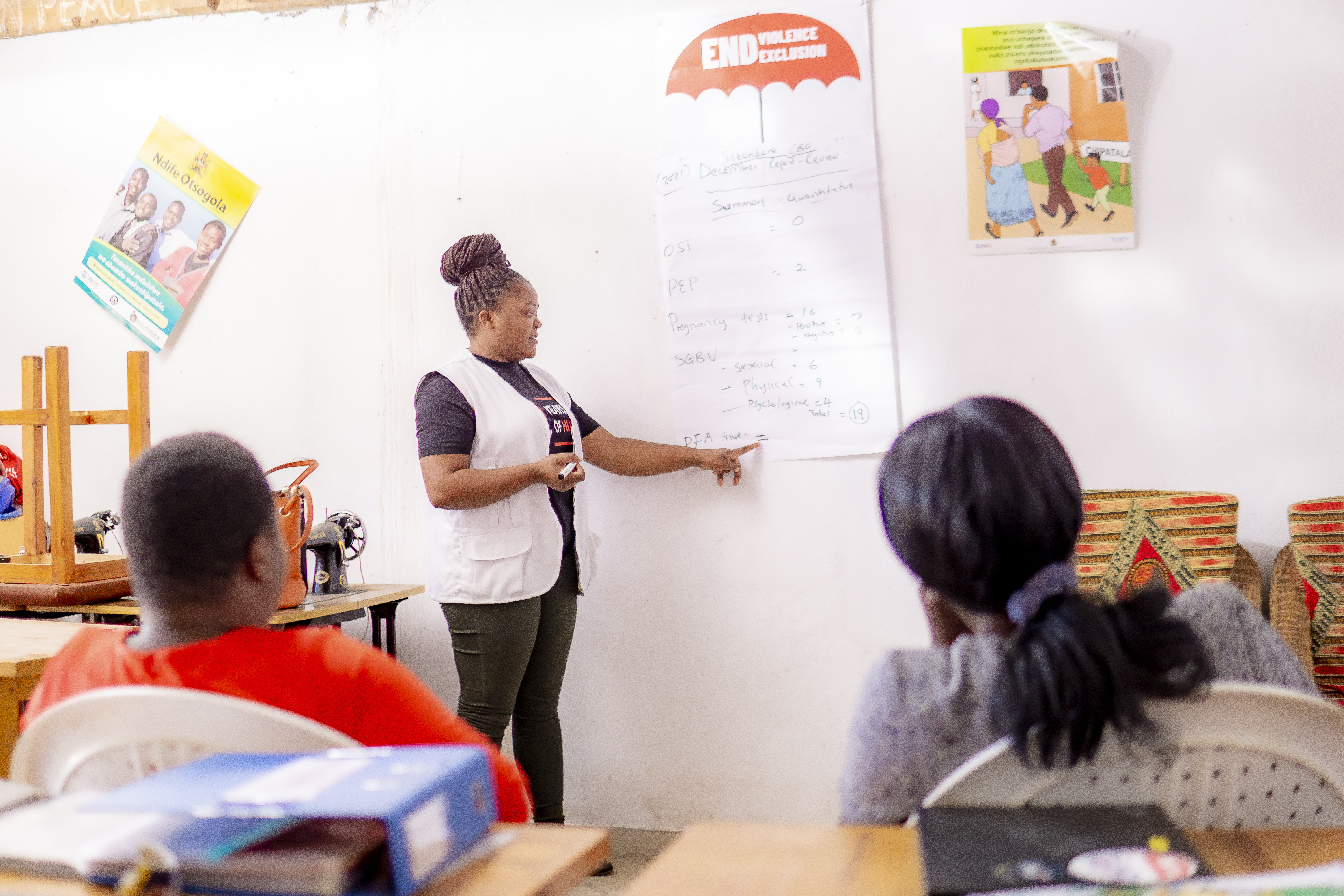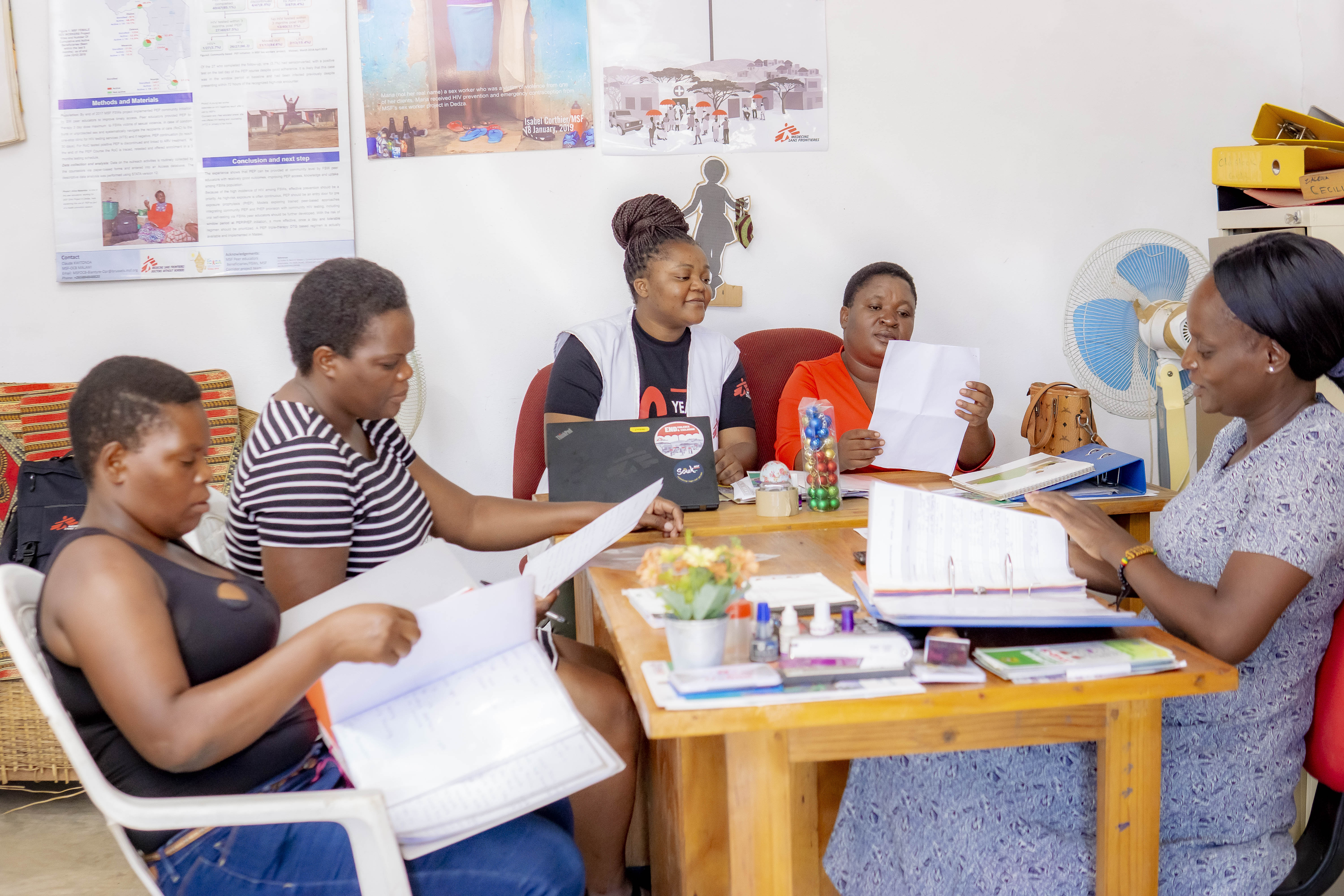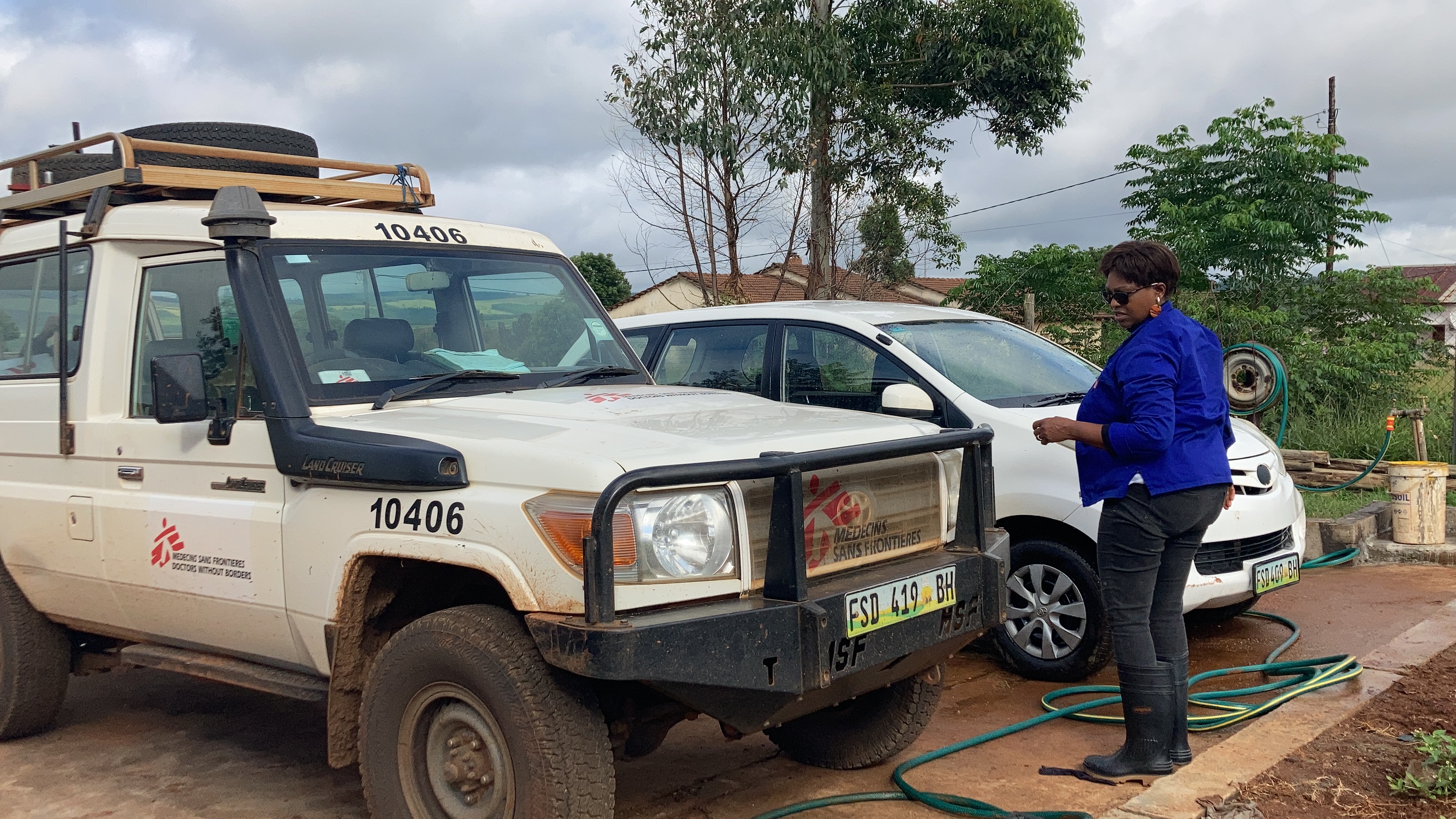“It’s about having a vision, then letting other people understand what this vision is, and having a discussion to say: I have this vision, and this is what I think,” said Gloria.
“Then having people understand what that vision is, and motivating them to work together with you towards attaining that vision.”
Her day-to-day sees her providing technical assistance and support to the grassroot organisations.
“These community-based organisations are run by women who, education-wise, haven’t gone very far with school. They need governance skills, administration skills. They should know how to budget money and how to apply for grants.”
Gloria started working with Médecins Sans Frontières (MSF) in 2018 as the first social worker attached to the Corridor project in Nsanje and Zalewa, which provided HIV, tuberculosis and sexual and reproductive healthcare to sex workers. Through her liaison, the sex worker community started to participate themselves in the delivery of care, shifting the project to a peer-led model with a strong self-managed care approach. MSF then handed over its activities to the Ministry of Health and a small number of community-based organisations formed by the peer sex workers themselves.
Since then, Gloria has continued to work with the community-based organisations in a mentorship capacity to help ensure their organisational sustainability, and the sustainability of their services.
"It's just about really being there with them when they have challenges that they need help with,” Gloria explained. “I'm there to help them and help them to network. You know, who they can link with for them to really have a standing in the community.”




